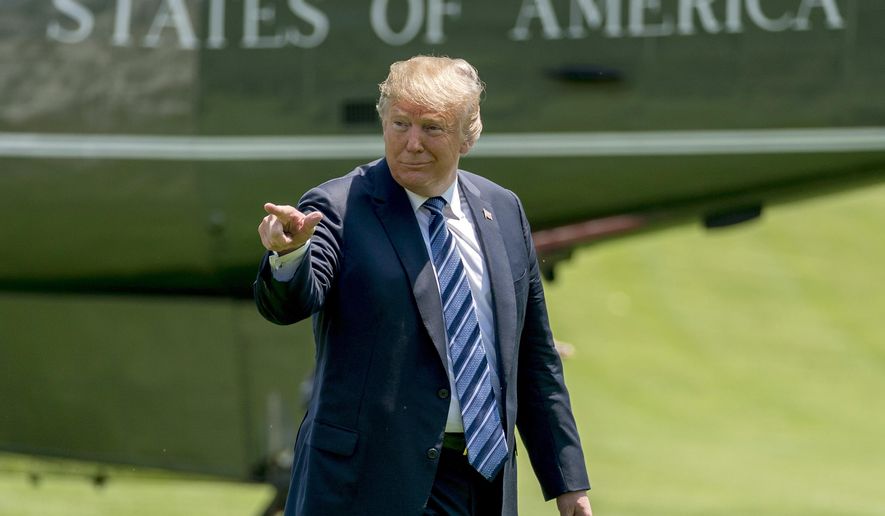The White House warned Congress on Wednesday not to overturn President Trump’s lenient deal on Chinese telecom firm ZTE, saying it would be a violation of his presidential powers.
Officials are trying to head off what would be the first major legislative rebuke for Mr. Trump, criticizing senators who agreed this week on legislation to reimpose a death-sentence penalty on the Chinese company by banning it from access to U.S. markets and products.
White House deputy press secretary Hogan Gidley said Mr. Trump’s watered-down penalty — a $1 billion fine and a U.S.-imposed oversight board — is tough enough. And he warned that the president considered the ability to make these decisions without congressional input to be a core part of his powers.
“The administration will work with Congress to ensure the final [defense policy bill] conference report respects the separation of powers,” Mr. Gidley said in a statement.
ZTE was caught violating sanctions on doing business with Iran and North Korea, was slapped with a fine, and promised to punish the executives responsible. But instead of punishing the executives, it rewarded them — spurring the new penalties.
Initially the Commerce Department delivered the death sentence penalty, banning ZTE from access to American components and effectively destroying its business model.
But Mr. Trump, as a personal favor to the Chinese government, stepped in and prodded his administration for leniency. They reduced the penalty to the $1 billion fine and more oversight.
Senators spanning the ideological spectrum, including some of the president’s staunchest defenders, are now resisting. They crafted language that would overturn the fine and reimpose the original penalty.
Not only did ZTE violate sanctions, they say, but its ties to the Chinese government make it a likely conduit for espionage on the U.S.
Senators wrote an amendment to reinstate the original ZTE business ban and have attached it to the defense policy bill, being debated on the Senate floor this week.
A vote is likely to come Thursday, and all sides expect it to pass. Minority Leader Charles E. Schumer tried to stiffen spines in the face of the administration’s opposition. “We cannot back off on an issue so vital to America’s national and economic security,” he said.
Mr. Trump does have some defenders. Sen. David Perdue, Georgia Republican, tried to strike the ZTE provision from the bill Wednesday, but he was blocked.
“We should not tie the hands of the administration,” Mr. Perdue said.
House lawmakers approved their defense bill earlier this year, before the ZTE issue arose, so it’s not part of their version.
The two bills will have to be reconciled, and the White House statement signaled Mr. Trump intends to weigh in at that point and try to delete the punishment.
Administration officials say China earned some leeway for its help in negotiations with North Korea over that country’s nuclear program.
The president’s foreign policies are increasingly being tested on Capitol Hill.
Some lawmakers are pushing legislation that would give Congress a chance to revoke the new tariffs Mr. Trump imposed on steel and aluminum imports. And lawmakers floated ideas this week for how they might impose limits and conditions on any deal the president reaches with North Korea.
But for the most part the administration has been able to tamp down revolts on Capitol Hill — leading one Republican to complain that the president has cowed his own party.
“’Gosh, we might poke the bear,’ is the language I’ve been hearing in the hallways,” said Sen. Bob Corker of Tennessee, who was pushing for the legislation to reel in the new tariffs.
• Dave Boyer can be reached at dboyer@washingtontimes.com.
• Stephen Dinan can be reached at sdinan@washingtontimes.com.




Please read our comment policy before commenting.